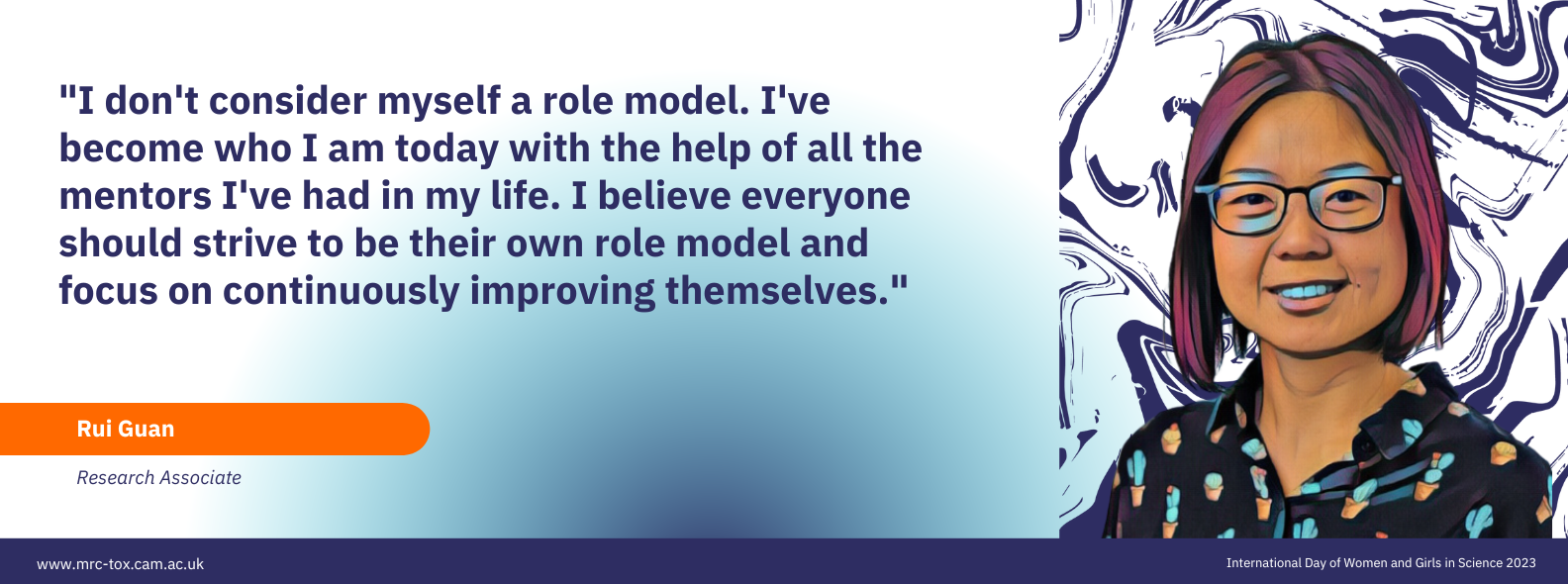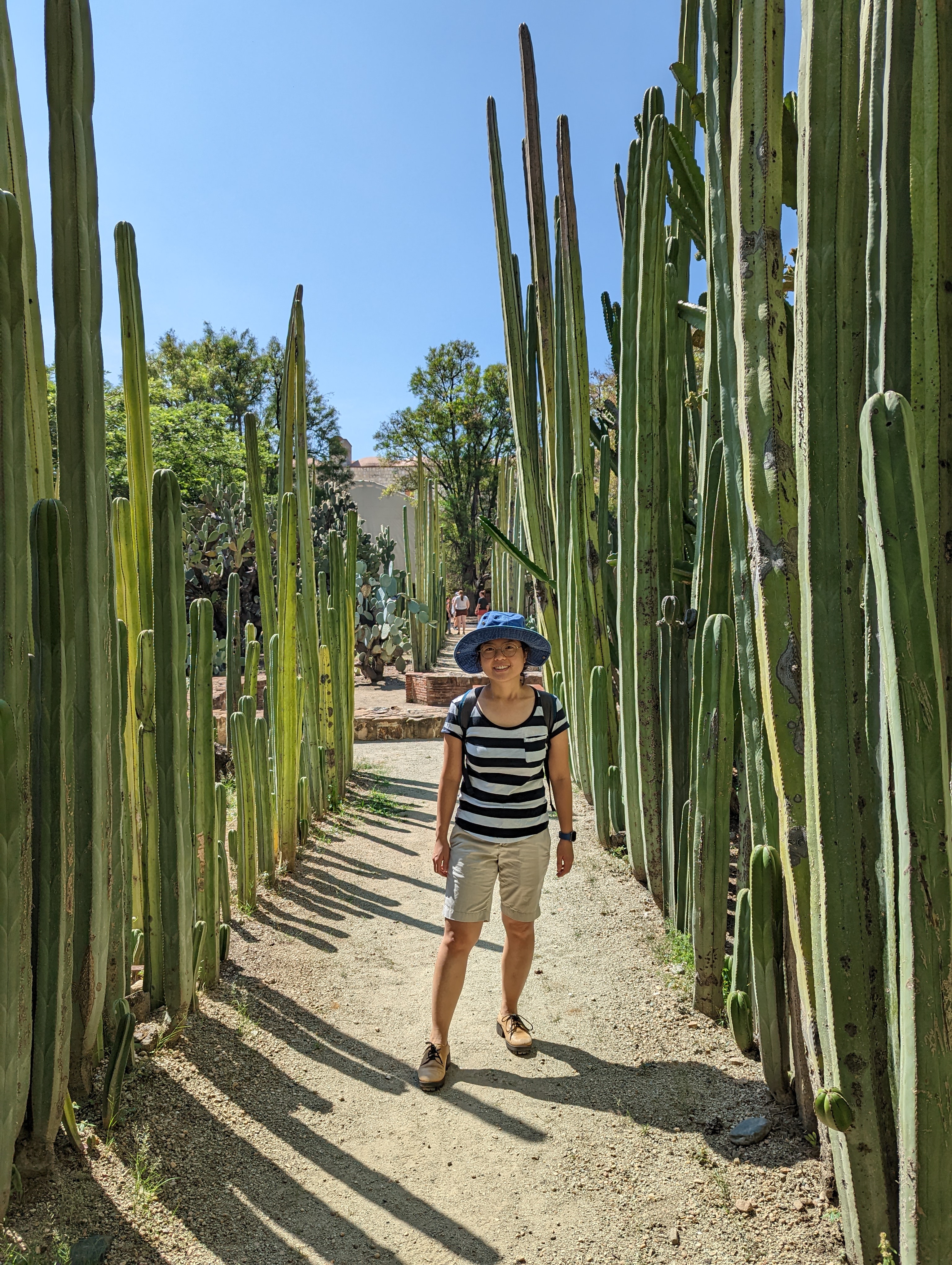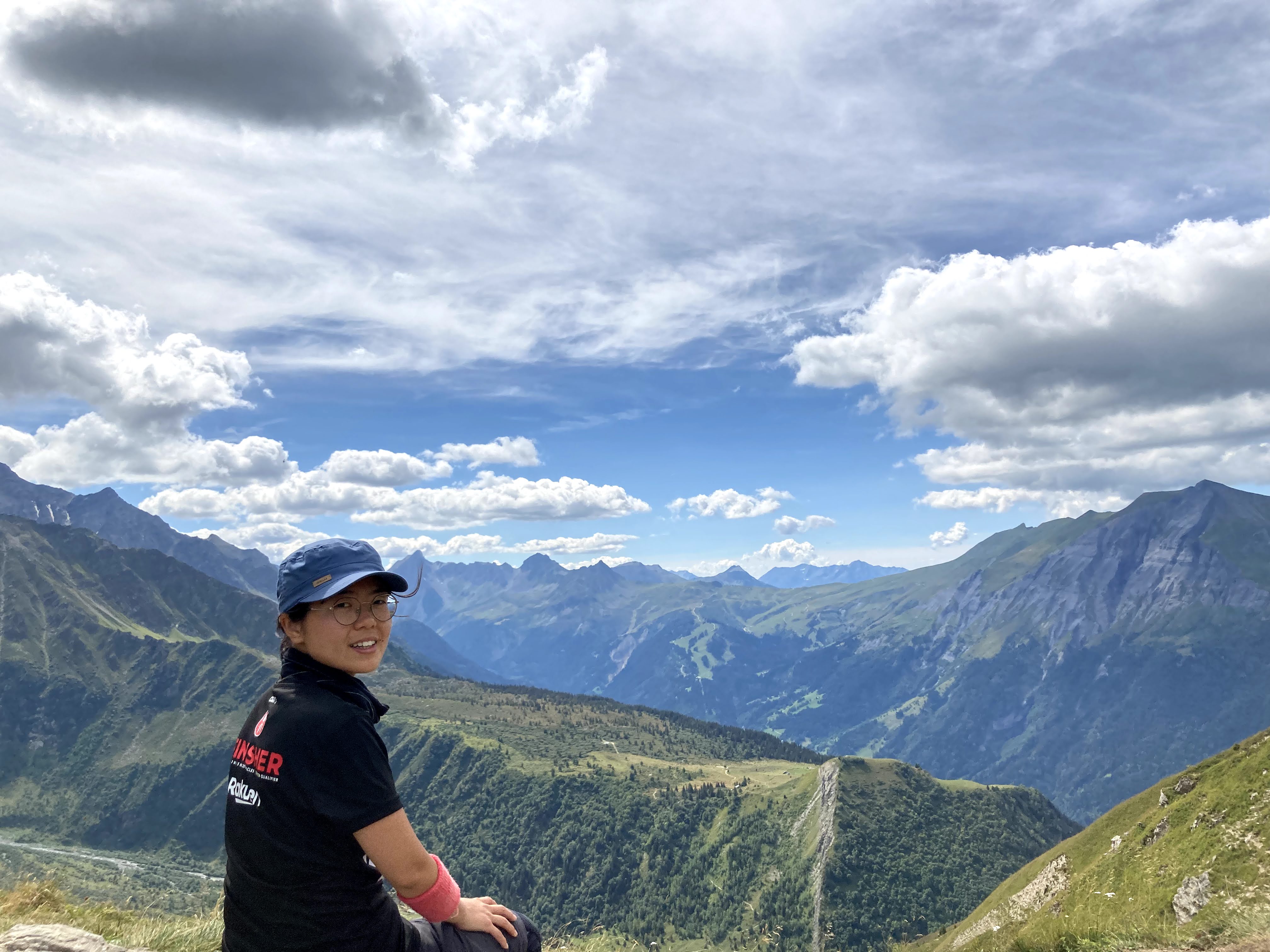To mark International Day of Women and Girls in Science 2023, we are sharing profiles of some of the women from the MRC Toxicology Unit highlighting their careers, experiences, passions and more. Today we want to introduce you to Rui.
Who are you and what is your role?
My name is Rui and I am a Research Associate in the Patil lab, where we study the interactions between the microbes harboured in our gut and xenobiotics we and our gut microbes are exposed to. As a computational microbiologist, my role focusses on understanding the genetic variation and diversity of the gut microbiome. This involves analysing sequencing data, interpreting the patterns and drawing conclusions based on these results.
What has your career in science looked like so far?
I studied Biomedical Engineering for my Bachelor's degree and shifted to bioinformatics during my senior year working on the genomics of plants like the ginkgo tree and animals. During my Masters, I had the opportunity to start exploring the formation of algae blooms by looking at the composition of the bloom-forming microbial communities. This project made me realise the importance of understanding the interactions between organisms, both micro- and macro-organisms.
In 2017, I moved to Germany for my PhD. There, I applied and developed computational tools to help us understand host-microbe interactions. I specifically focussed on disentangling the complex relationships between plants and the microbes living inside and on the immediate vicinity of their roots. In 2022, I began my journey here in the UK studying the environment-host-microbe interactions in the human gut.
Were you always going to be a scientist?
Yes, I have always wanted to work in academia since I was a child and I remain convinced of my choice. The possibility of always searching for the facts is the most appealing aspect of science for me. In biology, nothing seems constant but we are going our bet to discover the laws of nature.
Do you consider yourself to be a role model?
I don't consider myself a role model. I've become who I am today with the help of all the mentors I've had in my life. I believe everyone should strive to be their own role model and focus on continuously improving themselves.
What has been the proudest moment of your career so far?
Every day I find moments of pride in my life. Whether I discover something new in my own projects or read a peer's publication, I feel part of a larger exploration of humanity and I'm excited to be a part of it.
What do you enjoy doing outside of work?
I enjoy travelling when possible to experience different cultures, landscapes and cuisines. Solo hiking is another of my favourite activities, as it allows me to explore nature and provides space for conversations with myself. I also like visiting museums and exhibitions to explore various topics in diverse fields and gain new perspectives. Additionally, learning new languages in my free time gives me a sense of accomplishment and I find it very rewarding.
What advice would you share with other women in science or girls interested in getting into science?
My advice is to not be afraid of asking for help. Science is a field of constant learning and exploration and it can be intimidating to pursue it. It is important to remember that there are plenty of resources and people who are willing to help, including myself.




